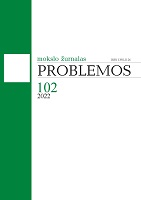The Tension between the Problem of Unconceived Alternatives and Epistemic Instrumentalism
The Tension between the Problem of Unconceived Alternatives and Epistemic Instrumentalism
Author(s): Lisa ZorzatoSubject(s): Epistemology, Contemporary Philosophy, Philosophy of Science
Published by: Vilniaus Universiteto Leidykla
Keywords: Realism; antirealism; common sense; Stanford; unconceived alternatives; scientific reliability;
Summary/Abstract: In this paper, I develop a critical assessment of epistemic instrumentalism as advocated by Kyle Stanford (2006). Epistemic instrumentalism is based on the claim that the criterion for the reliability of any theory is the absence of what Stanford calls ‘unconceived alternatives’. This means that the theory is reliable if and only if it does not admit of alternatives. Since most scientific theories do admit of unconceived alternatives, Stanford claims, they cannot be reliable. In contrast, ‘common sense’ claims are not exposed to unconceived alternatives, therefore they are reliable. Here, I analyse the definition of ‘common sense’ and argue that it is equally vulnerable to the ‘problem of unconceived alternatives’, pushing epistemic instrumentalism position to scepticism. The consequence is that the position of epistemic instrumentalist has nothing to stand on.
Journal: Problemos
- Issue Year: 2022
- Issue No: 102
- Page Range: 50-58
- Page Count: 9
- Language: English

